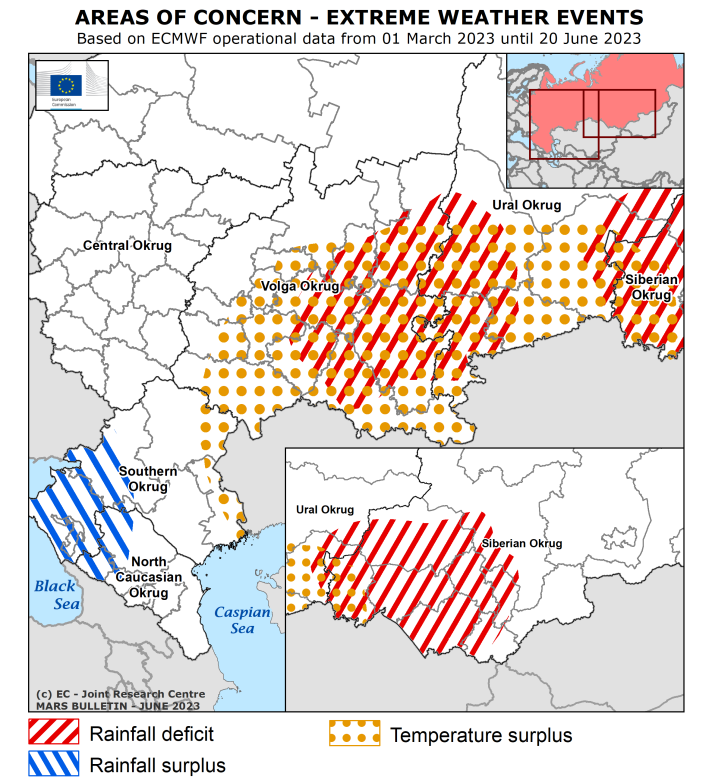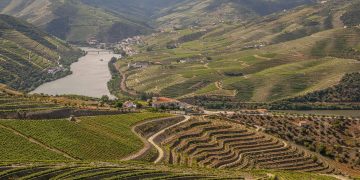Despite the positive yield outlook for winter cereals at national level, adverse conditions in more eastern parts of the country negatively affected the overall yield outlook for spring cereals.
Winter cereals season had a suboptimal start due to rainfall surplus or deficit in the main producing regions during autumn, and due to frost kill damages in the Volga okrug during winter. However, the overall mild temperatures during early spring allowed an early restart of vegetative growth.
The timely return of rainfall improved soil moisture conditions in most parts of the winter wheat belt while the absence of thermal stress presented favourable conditions for flowering and grain filling. However, the persistent drier and warmer-than-usual conditions in large part of the Volga okrug and Asian Russia negatively affected the yield potential of both winter and spring cereals.

Overall, above-average production levels of soft wheat and barley are expected, but well below last year’s record level.
Further information
JRC MARS (Monitoring Agricultural Resources) Bulletins
The latest information about global agricultural production hotspots for countries at risk of food insecurity is available on the JRC’s ASAP (Anomaly hot Spots of Agricultural Production).
O artigo foi publicado originalmente em JRC.




















































Discussão sobre este post